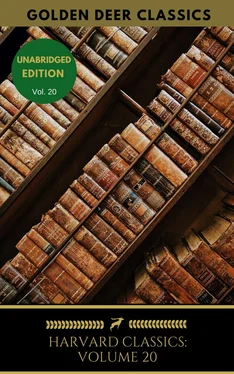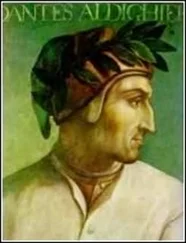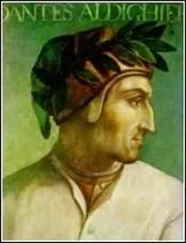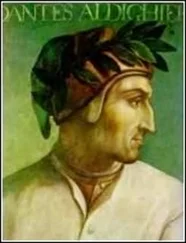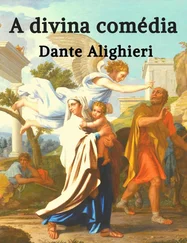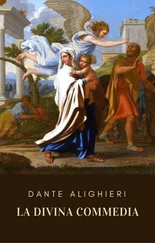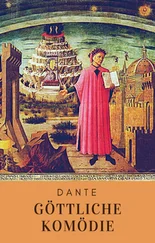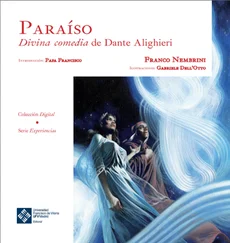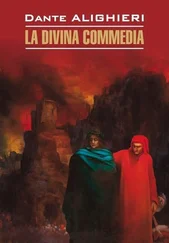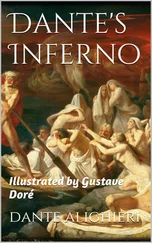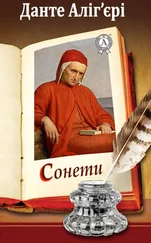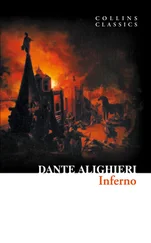Array Dante Alighieri - Harvard Classics Volume 20
Здесь есть возможность читать онлайн «Array Dante Alighieri - Harvard Classics Volume 20» — ознакомительный отрывок электронной книги совершенно бесплатно, а после прочтения отрывка купить полную версию. В некоторых случаях можно слушать аудио, скачать через торрент в формате fb2 и присутствует краткое содержание. Жанр: unrecognised, на английском языке. Описание произведения, (предисловие) а так же отзывы посетителей доступны на портале библиотеки ЛибКат.
- Название:Harvard Classics Volume 20
- Автор:
- Жанр:
- Год:неизвестен
- ISBN:нет данных
- Рейтинг книги:5 / 5. Голосов: 1
-
Избранное:Добавить в избранное
- Отзывы:
-
Ваша оценка:
- 100
- 1
- 2
- 3
- 4
- 5
Harvard Classics Volume 20: краткое содержание, описание и аннотация
Предлагаем к чтению аннотацию, описание, краткое содержание или предисловие (зависит от того, что написал сам автор книги «Harvard Classics Volume 20»). Если вы не нашли необходимую информацию о книге — напишите в комментариях, мы постараемся отыскать её.
1. The Divine Comedy, by Dante Alighieri
Also available:
The Complete Harvard Classics Collection (51 Volumes + The Harvard Classic Shelf Of Fiction)
50 Masterpieces You Have To Read Before You Die (Golden Deer Classics)
Harvard Classics Volume 20 — читать онлайн ознакомительный отрывок
Ниже представлен текст книги, разбитый по страницам. Система сохранения места последней прочитанной страницы, позволяет с удобством читать онлайн бесплатно книгу «Harvard Classics Volume 20», без необходимости каждый раз заново искать на чём Вы остановились. Поставьте закладку, и сможете в любой момент перейти на страницу, на которой закончили чтение.
Интервал:
Закладка:
The figure which the spirit lost; its skin
Softening, his indurated to a rind.
The shoulders next I mark’d, that entering join’d
The monster’s arm-pits, whose two shorter feet
So lengthen’d, as the others dwindling shrunk.
The feet behind then twisting up became
That part that man conceals, which in the wretch
Was cleft in twain. While both the shadowy smoke
With a new color veils, and generates
The excrescent pile on one, peeling it off
From the other body, lo! upon his feet
One upright rose, and prone the other fell.
Nor yet their glaring and malignant lamps
Were shifted, though each feature changed beneath.
Of him who stood erect, the mounting face
Retreated toward the temples, and what there
Superfluous matter came, shot out in ears
From the smooth cheeks; the rest, not backward dragg’d,
Of its excess did shape the nose; and swell’d
Into due size protuberant the lips.
He, on the earth who lay, meanwhile extends
His sharpen’d visage, and draws down the ears
Into the head, as doth the slug his horns.
His tongue, continuous before and apt
For utterance, severs; and the other’s fork
Closing unites. That done, the smoke was laid.
The soul, transform’d into the brute, glides off,
Hissing along the vale, and after him
The other talking sputters; but soon turn’d
His new-grown shoulders on him, and in few
Thus to another spake: “Along this path
Crawling, as I have done, speed Buoso now!”
So saw I fluctuate in successive change
The unsteady ballast of the seventh hold:
And here if aught my pen have swerved, events
So strange may be its warrant. O’er mine eyes
Confusion hung, and on my thoughts amaze.
Yet ’scaped they not so covertly, but well
I mark’d Sciancato: he alone it was
Of the three first that came, who changed not: tho’
The other’s fate, Gaville! still dost rue.
Canto XXVI
Argument.—Remounting by the steps, down which they have descended to the seventh gulf, they go forward to the arch that stretches over the eighth, and from thence behold numberless flames wherein are punished the evil counsellors, each flame containing a sinner, save one, in which were Diomede and Ulysses, the latter of whom relates the manner of his death.
Florence, exult! for thou so mightily
Hast thriven, that o’er land and sea thy wings
Thou beatest, and thy name spreads over hell.
Among the plunderers, such the three I found
Thy citizens; whence shame to me thy son,
And no proud honour to thyself redounds.
But if our minds, when dreaming near the dawn,
Are of the truth presageful, thou ere long
Shalt feel what Prato [170](not to say the rest)
Would fain might come upon thee; and that chance
Were in good time, if it befell thee now.
Would so it were, since it must needs befall!
For as time wears me, I shall grieve the more.
We from the depth departed; and my guide
Remounting scaled the flinty steps, which late
We downward traced, and drew me up the steep.
Pursuing thus our solitary way
Among the crags and splinters of the rock,
Sped not our feet without the help of hands.
Then sorrow seized me, which e’en now revives,
As my thought turns again to what I saw,
And, more than I am wont, I rein and curb
The powers of nature in me, lest they run
Where Virtue guides not; that, if aught of good
My gentle star or something better gave me,
I envy not myself the precious boon.
As in that season, when the sun least veils
His face that lightens all, what time the fly
Gives way to the shrill gnat, the peasant then,
Upon some cliff reclined, beneath him sees
Fire-flies innumerous spangling o’er the vale,
Vineyard or tilth, where his day-labor lies;
With flames so numberless throughout its space
Shone the eighth chasm, apparent, when the depth
Was to my view exposed. As he, whose wrongs
The bears avenged, as its departure saw
Elijah’s chariot, when the steeds erect
Raised their steep flight for heaven; his eyes meanwhile,
Straining pursued them, till the flame alone,
Upsoaring like a misty speck, he kenn’d:
E’en thus along the gulf moves every flame,
A sinner so enfolded close in each,
That none exhibits token of the theft.
Upon the bridge I forward bent to look
And grasp’d a flinty mass, or else had fallen,
Though push’d not from the height. The guide, who mark’d
How I did gaze attentive, thus began:
“Within these ardours are the spirits; each
Swatched in confining fire.” “Master! thy word,”
I answer’d, “hath assured me; yet I deem’d
Already of the truth, already wish’d
To ask thee who is in yon fire, that comes
So parted at the summit, as it seem’d
Ascending from that funeral pile [171]where lay
The Theban brothers.” He replied: “Within,
Ulysses there and Diomede endure
Their penal tortures, thus to vengeance now
Together hasting, as erewhile to wrath
These in the flame with ceaseless groans deplore
The ambush of the horse, [172]that open’d wide
A portal for the goodly seed to pass,
Which sow’d imperial Rome; nor less the guile
Lament they, whence, of her Achilles ’reft,
Deidamia yet in death complains.
And there is rued the stratagem that Troy
Of her Palladium spoil’d.”—“If they have power
Of utterance from within these sparks,” said I,
“O master! think my prayer a thousand-fold
In repetition urged, that thou vouchsafe
To pause till here the horned flame arrive.
See, how toward it with desires I bend.”
He thus: “Thy prayer is worthy of much praise,
And I accept it therefore; but do thou
Thy tongue refrain: to question them be mine;
For I divine thy wish: and they perchance,
For they were Greeks, [173]might shun discourse with thee.”
When there the flame had come, where time and place
Seem’d fitting to my guide, he thus began:
“O ye, who dwell two spirits in one fire!
If, living, I of you did merit aught,
Whate’er the measure were of that desert,
When in the world my lofty strain I pour’d,
Move ye not on, till one of you unfold
In what clime death o’ertook him self-destroy’d.”
Of the old flame forthwith the greater horn
Began to roll, murmuring, as a fire
That labors with the wind, then to and fro
Wagging the top, as a tongue uttering sounds,
Threw out its voice, and spake: “When I escaped
From Circe, who beyond a circling year
Had held me near Caieta by her charms,
Ere thus Æneas yet had named the shore;
Nor fondness for my son, nor reverence
Of my old father, nor return of love,
That should have crown’d Penelope with joy,
Could overcome in me the zeal I had
To explore the world, and search the ways of life,
Man’s evil and his virtue. Forth I sail’d
Into the deep illimitable main,
With but one bark, and the small faithful band
That yet cleaved to me. As Iberia far,
Far as Marocco, either shore I saw,
And the Sardinian and each isle beside
Which round that ocean bathes. Tardy with age
Were I and my companions, when we came
To the strait pass, [174]where Hercules ordain’d
The boundaries not to be o’erstepp’d by man.
The walls of Seville to my right I left,
On the other hand already Ceuta past.
‘O brothers!’ I began, ‘who to the west
Читать дальшеИнтервал:
Закладка:
Похожие книги на «Harvard Classics Volume 20»
Представляем Вашему вниманию похожие книги на «Harvard Classics Volume 20» списком для выбора. Мы отобрали схожую по названию и смыслу литературу в надежде предоставить читателям больше вариантов отыскать новые, интересные, ещё непрочитанные произведения.
Обсуждение, отзывы о книге «Harvard Classics Volume 20» и просто собственные мнения читателей. Оставьте ваши комментарии, напишите, что Вы думаете о произведении, его смысле или главных героях. Укажите что конкретно понравилось, а что нет, и почему Вы так считаете.
